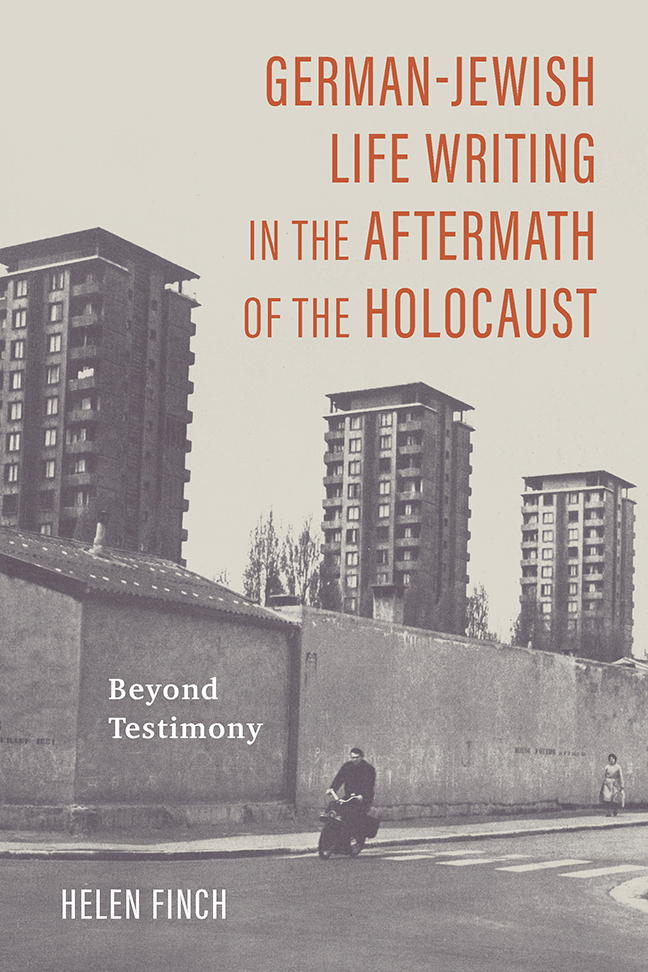Book contents
- Frontmatter
- Dedication
- Contents
- Acknowledgments
- List of Abbreviations
- Introduction
- 1 Modernist Marginalization in Exile: H. G. Adler in the 1950s and 1960s
- 2 Solidarity and Trauma between Austria and the GDR: Fred Wander from the 1960s to 2006
- 3 Transnational Transgression: Edgar Hilsenrath from 1980 to 2018
- 4 Feminist Rage: Ruth Klüger in the New Millennium
- Conclusion
- Bibliography
- Index
3 - Transnational Transgression: Edgar Hilsenrath from 1980 to 2018
Published online by Cambridge University Press: 10 January 2024
- Frontmatter
- Dedication
- Contents
- Acknowledgments
- List of Abbreviations
- Introduction
- 1 Modernist Marginalization in Exile: H. G. Adler in the 1950s and 1960s
- 2 Solidarity and Trauma between Austria and the GDR: Fred Wander from the 1960s to 2006
- 3 Transnational Transgression: Edgar Hilsenrath from 1980 to 2018
- 4 Feminist Rage: Ruth Klüger in the New Millennium
- Conclusion
- Bibliography
- Index
Summary
Edgar Hilsenrath as Provocateur
A reputation of transgression and a mythology of censorship surrounded the German Holocaust survivor Edgar Hilsenrath,from the time when his first novel was published in Germany in the 1960s. Few studies of Hilsenrath's first two published novels of the Holocaust, Nacht (Night, first published 1964) and Der Nazi & der Friseur (1977; first published in English translation as The Nazi and the Barber in 1971) fail to mention briefly the difficulties that Hilsenrath had in getting these works published, facing opposition from his German publishers Kindler who feared they might be viewed as antisemitic. At the same time, recent work, including Patricia Vahsen's scrupulous reception history of Hilsenrath, also qualifies these claims. In this chapter, I examine the way in which Hilsenrath transformed the censorship myth surrounding his early literary testimonials into a subsequent series of semi-autobiographical novels about the aftermath of writing and testifying in the postwar years: Fuck America (first published 1980), Die Abenteuer des Ruben Jablonski (The Adventures of Ruben Jablonski, 1997), and Berlin… Endstation (Berlin… End of the Line, 2006). In addition I examine how Hilsenrath uses compulsive literary transgression as a technique for registering and resisting the aftermath of trauma and testimony. At the same time, Hilsenrath's literary transgressions frequently go beyond satire and provocation into dark celebrations of rape and sexual violence, working out complexes of rejection and the struggle for self-expression in a disturbingly traumatized way.
There is certainly evidence of suspicion and hostility towards Hilsenrath's literary production from various gatekeeping figures in the German literary field. Nacht, a novel about an unnamed ghetto, was initially suspect among German publishers for the unflinching way in which it portrayed the ruthless survival strategies that the Jewish inmates were forced into under inhumane conditions. His next novel, Der Nazi & der Friseur, a grotesque satire about a Nazi perpetrator who takes on the identity of one of his Jewish victims after World War II, has been described as pornographic for bringing the themes of sexuality and the Holocaust into contact, as well as inappropriate for using the voice of the perpetrator. Both novels were thus deemed to be excessive, disrupting German literary postwar consensuses of philosemitism and authenticity.
- Type
- Chapter
- Information
- German-Jewish Life Writing in the Aftermath of the HolocaustBeyond Testimony, pp. 108 - 149Publisher: Boydell & BrewerPrint publication year: 2023

